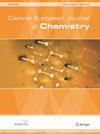Cultivating conditions optimization of the anaerobic digestion of corn ethanol distillery residuals using response surface methodology
引用次数: 10
Abstract
This study investigated the individual and interactive effects of three factors — temperature, inoculum/substrate ratio (ISR) and inoculum typology — on the anaerobic digestion of corn ethanol distillery wastewater. Biochemical methane potential assays planned with factorial design with two independent quantitative variables on three levels (ISR: 1:1, 2:1 and 3:1; temperature: 30°C, 33.5°C, 37°C) and one independent qualitative variable (inoculum type: suspended, granular, mixed) have been performed. Response Surface Methodology has been used to study the effect of the factors with the aim of maximizing the specific methane yields (YCH4) obtainable with this substrate. The results show that all three investigated factors influence in a significant matter the YCH4, the ISR having the strongest effect on it. The temperature has significant influence on the YCH4 only in combination with high ISR values. The optimal conditions for the maximum YCH4 (551 mL CH4 g−1 VSadded) have been found at 37°C operating temperature, ISR=3:1 and using granular inoculum. These conditions gave rise to a 4-fold increase of YCH4 with respect to the worst combination of factors (YCH4=129 mL g−1 VSadded for the suspended inoculum type, at 30°C and ISR=1:1). The results improve the knowledge on the digestion of this substrate, providing information for successful process up-scaling.响应面法优化玉米乙醇蒸馏渣厌氧消化培养条件
研究了温度、接种物/底物比(ISR)和接种物类型对玉米乙醇蒸馏废水厌氧消化的影响。生化甲烷电位测定计划采用因子设计,在三个水平(ISR: 1:1, 2:1和3:1)上有两个独立的定量变量;温度:30°C, 33.5°C, 37°C)和一个独立的定性变量(接种类型:悬浮,颗粒状,混合)进行了测试。利用响应面法研究了各因素的影响,目的是使该底物的比甲烷产率(YCH4)最大化。结果表明,三种因子对YCH4的影响均显著,其中ISR对YCH4的影响最大。温度只有在高ISR值的情况下才对YCH4有显著影响。在37℃工作温度、ISR=3:1和颗粒接种条件下,获得最大YCH4 (551 mL CH4 g−1 vs1)的最佳条件。在这些条件下,与最坏的因素组合相比,YCH4增加了4倍(悬浮接种型的YCH4=129 mL g−1 vsv,在30°C和ISR=1:1)。结果提高了对该底物消化的认识,为成功的工艺放大提供了信息。
本文章由计算机程序翻译,如有差异,请以英文原文为准。
求助全文
约1分钟内获得全文
求助全文

 求助内容:
求助内容: 应助结果提醒方式:
应助结果提醒方式:


